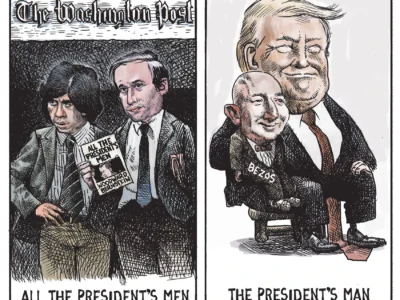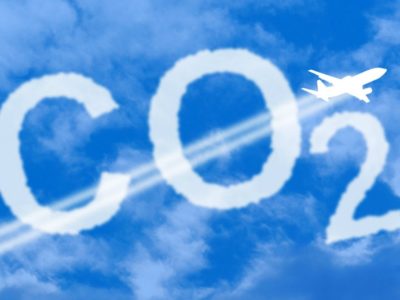The Origins of Climate Awareness in the Legal Academy
Forty years ago, the legal academia was getting its first glimmering about climate change.
Today, climate change is the central, though by no means the only, concern in environmental law. Awareness of the issue began slowly, however. Westlaw searches for “global warming” and “greenhouse effect” pick up only a handful of citations before 1985. The earliest mentions of these terms in the law review literature came in the late 1970s, and only one of the pre-1985 discussions took a comprehensive look at the problem.
I found only one relevant reference using the term “climate change” before 1985. In one sentence of a 1975 article, John Barton referred to “climate change” as a potentially severe long-term problem. But it’s not totally clear what he meant, because “climate change” was used at the time to refer to a range of issues including acid rain, damage to the ozone layer, local weather control efforts, and desertification.
The earliest clear references to climate change that turned up in my search came three years later. Both were in 1978 articles about nuclear energy. The most notable was by an administrative law professor at Harvard, one Stephen Breyer. Now-Justice Breyer argued that it was misleading to consider the environmental impact of nuclear power without also considering the impact of alternatives such as coal. In particular, he said, “reliance upon coal, on the other hand, could aggravate the ‘greenhouse effect,’ whereby excess carbon dioxide (which accompanies coal burning) traps heat inside the earth’s atmosphere, thus possibly melting the icecaps and raising the level of the oceans.” He apparently viewed this as a speculative concern, however, since he immediately added that coal “more realistically” could cause harm to coal miners and other health effects. The other article about nuclear power also observed in passing that “coal combustion may disrupt global weather patterns by increasing the amount of carbon dioxide in the atmosphere, creating a ‘greenhouse effect.’”
There were a few more mentions of climate change in 1983. In an article about loss of coastal land in Louisiana, Oliver Houck observed that sea level rise might pose a “grim” long-term threat to the coast but had had little effect to date. In another article, Herbert Taubenfeld recounted that:
“In 1980, when I spent the summer with the International Division of the EPA, I did an exercise in ‘forward drafting.’ I tried to draft an international treaty limiting the production by all methods of carbon dioxide (to control the global warming trends caused by increasing levels of carbon dioxide) and limiting the production of chlorofluorocarbons (in particular, limit the production of freon, which is the most important element used in refrigeration and air conditioning processes).”
Taubenfeld then noted that these policies might make sense for some countries but not for others — for instance, the Soviet Union might benefit from warming.
A 1981 article by Edith Brown Weiss provided the most thorough (as well as thoughtful) treatment of the climate change issue. The article isn’t available on Westlaw, but a reference to the symposium in which it appeared led me to track it down. (Available on Hein Online, if you have access.) Based on a projection that global CO2 would double by 2050, she referred to climate models forecasting global temperature increases of 2°C to 3.5°C., an increase she said would have “a major impact on the world’s climates, ocean currents, and growing seasons.” Brown referred to a report of the Council on Environmental Quality calling this “one of the most important contemporary environmental problems,” threatening the stability of the global climate. Given the higher level of scientific uncertainty forty years ago, Brown called for consideration of a series of measures, including requiring environmental impact statements to include CO2 emissions, removal of CO2 from smokestacks, and limits on the use of coal. She also called for international consultations and for strategies to deal with deforestation. Given the uncertainties, however, she said that the issue “should not be pushed into high-level political debates that would cause countries to adopt premature positions based on inconclusive premises and embedded in national political rhetoric.”
I suspect that there were several reasons why legal academics failed to focus more on climate change in this early period. First, the problem was more remote forty years ago than it is today. There was also much more scientific uncertainty about the magnitude of warming and its impacts than there is today. Second, there weren’t any legal developments to talk about, with the first UN treaty 7-10 years in the future. Third, there was so much else going on in environmental law. For instance, Weiss wrote the year after the Superfund law was passed and barely a decade after the Clean Air Act went into effect.
Whatever the reason, legal scholarship seems in retrospect to have been a bit slow to focus on the issue of climate change. With a few exceptions, legal academia cannot claim much credit for foreseeing how large the issue would loom in the future (now).
Reader Comments
5 Replies to “The Origins of Climate Awareness in the Legal Academy”
Comments are closed.







REALITY CHECK Greta Thunberg says it best:
Thunberg slams 30 years of climate ’empty words’
https://www.msn.com/en-us/news/world/thunberg-slams-30-years-of-climate-empty-words/ar-AAOUnT5?ocid=msnews
REALITY CHECK #2 When Political and Intellectual Leaders Fail:
People under 40 will experience ‘unprecedented life’ of climate change disasters, study says
https://www.msn.com/en-us/news/world/people-under-40-will-experience-unprecedented-life-of-climate-change-disasters-study-says/ar-AAOVobq?ocid=msnews
Historians warned us that when political or intellectual leaders fail to meet the challenges of change then civilizations can fail, and once again we are failing, as this post testifies by the journal Science documents.
So as the 2006 Global Warning issue cover story of CALIFORNIA Magazine asks:
Can we adapt in time?
What the Hell is Wrong with us?
We live in a world today where the future for our children is already experiencing climate change disasters that are killing innocent children.
And now heroic healthcare workers, and educators, are threatened with and experiencing violence while trying to protect us during the pandemic.
And the UN is totally failing to protect the human race because of The Power of Money that controls them and corrupt politicians in Washington who aren’t even treating Global Warming as a paramount priority that must be their highest priority, while academics consider the public as too “impure” to even communicate with.
How about a detailed retrospective quoting every climate change denial, obfuscation, equivocation and foot dragging denunciation by US corporations, K St. lobbyist, state and federal leader and legislator?
The legal academic who did the most thinking about climate was probably Roscoe Pound since he wrote and thought deeply about phytogeography but, of course, anthropogenic climate change was not a thing in his day.